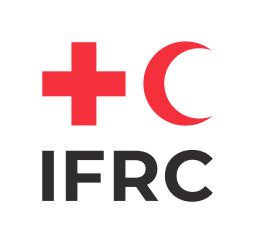Why was International Federation of Red Cross and Red Crescent Societies Awarded the Nobel Prize for Peace in 1963?
Recognizing Humanitarian Excellence: IFRC's Nobel Prize Journey
The International Federation of Red Cross and Red Crescent Societies (IFRC) Awarded the Nobel Prize for Peace in 1963:
A Beacon of Humanity’s Hope
The Nobel Prize for Peace has often been a testament to the power of humanitarian efforts and dedication to alleviating suffering across the world. In 1963, the prestigious honor was bestowed upon the International Federation of Red Cross and Red Crescent Societies (IFRC), recognizing their unwavering commitment to providing aid, solace, and hope to those in dire need.
 The IFRC, established in 1919, operates as an umbrella organization, encompassing a network of National Red Cross and Red Crescent Societies spread across the globe. This international humanitarian movement, originating from the vision of Henry Dunant in the aftermath of the Battle of Solferino in 1859, has since evolved into a symbol of compassion, solidarity, and assistance in times of crisis.
The IFRC, established in 1919, operates as an umbrella organization, encompassing a network of National Red Cross and Red Crescent Societies spread across the globe. This international humanitarian movement, originating from the vision of Henry Dunant in the aftermath of the Battle of Solferino in 1859, has since evolved into a symbol of compassion, solidarity, and assistance in times of crisis.
The recognition by the Nobel Committee in 1963 underscored the remarkable contributions of the IFRC in upholding the principles of the Red Cross and Red Crescent Movement. These principles are rooted in neutrality, impartiality, independence, voluntary service, unity, and universality. The IFRC’s dedication to these principles has been evident through its diverse humanitarian actions, including disaster response, healthcare provision, promoting respect for international humanitarian law, and disaster risk reduction.
In a world often rife with conflicts, natural disasters, and complex emergencies, the IFRC has consistently stepped up to offer a beacon of hope. From aiding refugees and displaced persons to providing medical care and disaster relief, the organization has tirelessly worked towards the alleviation of human suffering. Their efforts extend not only to immediate relief but also to the long-term development and resilience of communities facing adversity.
The Nobel Prize was a testament to the importance of the IFRC’s work, showcasing the impact that organized and dedicated humanitarian efforts can have on the lives of countless individuals. The recognition served as a reminder of the significance of humanitarian values and the imperative of global solidarity, especially in times of crisis.
As we reflect on the IFRC’s Nobel Prize win in 1963, it is a reminder that the pursuit of peace goes hand in hand with the alleviation of suffering. The organization’s legacy continues to inspire generations of volunteers, aid workers, and humanitarians who carry the torch of compassion and hope into the darkest corners of the world.
the International Federation of Red Cross and Red Crescent Societies’ Nobel Prize win in 1963 was a well-deserved recognition of their relentless dedication to humanitarian values. Their actions stand as a testament to the positive impact that organized humanitarian efforts can have on the lives of individuals and communities worldwide. The IFRC’s legacy continues to remind us of the power of compassion, solidarity, and the pursuit of a more peaceful and humane world.




